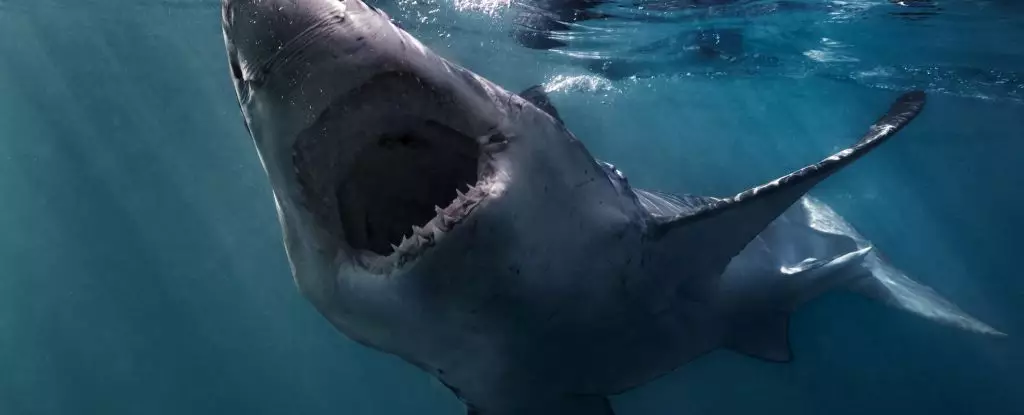Recently, a distressing incident of shark-on-shark crime has been brought to light by marine biologists conducting research in the waters of Bermuda. The discovery of a deceased pregnant porbeagle has left scientists stunned and eager to understand the implications of such an event on the species’ population dynamics. This article explores the details of this tragic occurrence and sheds light on the research efforts made to unravel the mystery behind it.
Marine biologist Brooke Anderson of Arizona State University was shocked when temperature data from a satellite tag on a pregnant porbeagle revealed a gruesome truth. The data suggested that the porbeagle had been devoured by a larger shark, leaving researchers in disbelief. Porbeagles, also known as Lamna nasus, are large mackerel sharks that play a crucial role in marine ecosystems. However, their numbers are declining rapidly due to various human activities such as recreational and commercial fishing.
Female porbeagles have a slow reproductive cycle, starting to reproduce only around the age of 13 and giving birth to litters of up to four pups every one or two years. This slow reproductive rate makes them vulnerable to population decline when faced with multiple threats. To protect these unique creatures, Anderson and her team utilized satellite tags to monitor their movements and behaviors. The tags provided valuable insights into the porbeagles’ habits and helped researchers understand the challenges they face in the wild.
The pregnant porbeagle in question was tagged in October 2020, and researchers started receiving unusual data from the tag in April 2021. The data indicated a sudden increase in water temperature, signaling a potential predation event. The porbeagle seemed to have been eaten by another shark, most likely a white shark or a shortfin mako, which are known for their partial endothermic nature. The tag’s transmission from the predator’s digestive tract to the ocean’s surface confirmed the tragic fate of the porbeagle.
While shark predation is not uncommon, such incidents involving large sharks are rarely observed. The fact that the porbeagle was pregnant adds another layer of concern, as multiple sharks were lost in a single predation event. This highlights the importance of understanding predator-prey dynamics in marine ecosystems and the need for conservation efforts to protect vulnerable species like the porbeagle. Tagging more porbeagles and other sharks could provide valuable insights into their behavior and interactions in the wild.
The recent discovery of a pregnant porbeagle’s unfortunate fate at the hands of a larger shark underscores the challenges faced by marine species in a rapidly changing environment. By leveraging advanced technologies like satellite tagging, researchers can unravel the mysteries of the open ocean and uncover novel behaviors in highly mobile species like sharks. Understanding the dynamics of predator-prey relationships is crucial for developing effective conservation strategies and safeguarding the biodiversity of our oceans.


Leave a Reply